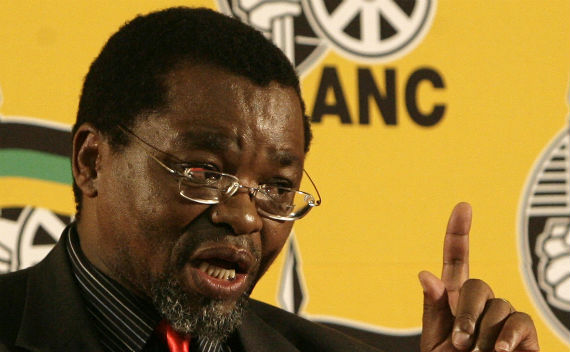South Africa’s ANC to the Rescue of Zimbabwe’s ZANU-PF?
More on:

Gwede Mantashe, secretary general of South Africa’s ruling African National Congress (ANC), in a speech in Bulawayo, Zimbabwe, said the ANC would assist Robert Mugabe’s ZANU-PF in the upcoming elections. Mantashe is quoted in the media as saying, “It is important for ZANU–PF to regain lost ground and continue to represent the aspirations of the people of Zimbabwe.”
While there may be little of practical consequence in the ANC offer, Mantashe’s speech illustrates the contradictions of South Africa’s policy toward Zimbabwe.
Jacob Zuma, South Africa’s president and the head of the ANC, has long been involved in seeking a settlement in Zimbabwe between Mugabe and ZANU-PF on one side and Morgan Tsvangirai and his Movement for Democratic Change on the other. But, Mantashe’s speech indicates that far from being neutral, the ANC-dominated South African government will likely support Mugabe. The ANC and ZANU-PF are both “liberation movements,” and that common ground may be more important than South Africa’s national interest. (South Africa hosts up to a quarter of Zimbabwe’s population as refugees; their presence unleashes periodic waves of xenophobia in the townships.)
It might be argued that Mantashe was speaking only for the party, not the South African government. However, given the overwhelming majority of the ANC in South Africa’s legislature and its dominance of the executive, the boundaries between party and government are blurred, to say the least.
Some South African human rights activists are concerned about a seeming trend in which the party is increasingly identified with the state. They see this as an element in the ANC-sponsored “Secrecy Act,” which may stifle criticism of ANC politicians by whistle blowers and the vibrant South African press, which, however, is mostly white-owned. Some on the left, notably Winnie Mandela (Nelson Mandela’s ex-wife) and Julius Malema (now deposed head of the ANC youth league), express frustration with the various legal and constitutional protections enshrined in law as inhibiting South Africa’s “transformation” from a white-dominated state into a “non-racial democracy” characterized by “justice” for the black majority. In such circles, there is sympathy for Mugabe’s dispossession of white Zimbabwean farmers – especially as South Africa’s own land reform program has made little progress.
The identification of the party with the state may be a comfortable stance for Mantashe, who, however, is no friend of Malema’s. He is chairperson of the South African Communist Party as well as secretary general of the ANC. Until 2008, he was secretary general of the National Union of Mineworkers. So, he bridges the three parts of the alliance that governs South Africa: the ANC, the Communist party, and the Congress of South African Trade Unions. However, like many of his colleagues, he does not seem to be hesitant about participating in the capitalist system: he was the first trade unionist to be appointed to the board of directors of a Johannesburg Stock Exchange limited liability company.
More on:
 Online Store
Online Store